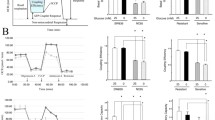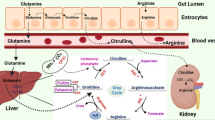Abstract
β-Alanine is a non-essential amino acid and presents as a major component of various sports supplements. It is a non-proteogenic amino acid, formed in vivo by degradation of carnosine, anserine, balenine, and dihydrouracil. The present study was aimed at investigating the anti-tumor effects of β-alanine in renal and cervical tumor cells. Sulforhodamine-B assay and flow cytometric analysis were used to measure cell viability. Lactate dehydrogenase (LDH) expression was analyzed using FITC-conjugated fluorescent antibody. The cellular adenosine triphosphate (ATP) content was measured using bioluminescence method. Cell migration was determined by the simple standard-scratch method. β-Alanine reduced renal and cervical cell growth significantly. Percentage of inhibition of renal and cervical tumor cells was increased at higher concentration of β-alanine. LDH expression and ATP content were significantly reduced in renal and cervical tumor cells in a dose-dependent manner. Renal and cervical tumor cell migration were significantly reduced following 10 and 100 mM of β-alanine treatment. In our study, β-alanine exerts no significant effect on normal MDCK cells except a marginal effect at the highest concentration (100 mM). In summary, our experimental data suggest that β-alanine may be a potential anti-tumor agent exhibiting several anti-cancer effects in renal and cervical tumor cells.






Similar content being viewed by others
References
Asperger A, Renner C, Menzel M, Gebhardt R, Meixensberger J, Gaunitz F (2011) Identification of factors involved in the anti-tumor activity of carnosine on glioblastomas using a proteomics approach. Cancer Investig 29:272–281
Baguet A, Koppo K, Pottier A, Derave W (2010) Beta-Alanine supplementation reduces acidosis but not oxygen uptake response during high-intensity cycling exercise. Eur J Appl Physiol 108:495–503
Derave W, Ozdemir MS, Harris R, Pottier A, Reyngoudt H, Koppo K, Wise JA, Achten E (2007) “Beta-alanine supplementation augments muscle carnosine content and attenuates fatigue during repeated isokinetic contraction bouts in trained sprinters. J Appl Physiol 103:1736–1743
Gaunitz F, Hipkiss AR (2012) Carnosine and cancer: a perspective. Amino Acids 43:135–142
Hanahan D, Weinberg RA (2011) Hallmarks of cancer: the next generation. Cell 144:646–674
Harris RC, Tallon MJ, Dunnett M, Boobis L, Coakley J, Kim HJ, Fallowfield JL, Hill CA, Sale C, Wise JA (2006) The absorption of orally supplied beta-alanine and its effect on muscle carnosine synthesis in human vastus lateralis. Amino Acids 30:279–289
Hill CA, Harris RC, Kim HJ, Harris BD, Sale C, Boobis LH, Kim CK, Wise JA (2007) Influence of beta-alanine supplementation on skeletal muscle carnosine concentrations and high-intensity cycling capacity. Amino Acids 32:225–233
Holliday R, McFarland GA (1996) Inhibition of the growth of transformed and neoplastic cells by the dipeptide carnosine. Br J Cancer 73:966–971
Hutschenreuther A, Birkenmeier G, Bigl M, Krohn K, Birkemeyer C (2013) Glycerophosphoglycerol, beta-alanine, and pantothenic acid as metabolic companions of glycolytic activity and cell migration in breast cancer cell lines. Metabolites 3:1084–1101
Jordan T, Lukaszuk J, Misic M, Umoren J (2010) Effect of beta-alanine supplementation on the onset of blood lactate accumulation (OBLA) during treadmill running: pre/post 2 treatment experimental design. J Int Soc Sports Nutr 7:20
Kramer N, Walzl A, Unger C, Rosner M, Krupitza G, Hengstschläger M, Dolznig H (2013) In vitro cell migration and invasion assays. Mutat Res 752:10–24
Muthuraman P, Ravikumar S, Muthuviveganandavel V, Dongpil K (2014) Effect of cortisol on calpains in the C2C12 and 3T3-L1 cells. Appl Biochem Biotechnol 172:3153–3162
Muthuraman P, Enkhtaivan G, Bhupendra M, Chandrasekaran M, Rafi N, Kim DH (2015) Investigation of role of aspartame on apoptosis process in Hela cells. Saudi J Biol Sci 23:503–506
Muthuraman P, Ekhtaivan G, Kim DH (2016a) Cytotoxic effects of aspartame on human cervical carcinoma cells. Toxicol Res 5:45–52
Muthuraman P, Gansukh E, Kim DH (2016b) Therapeutic efficacy of natural dipeptide carnosine against human cervical carcinoma cells. J Mol Recognit 29:426–435
Nagajyothi PC, Pandurangan M, Sreekanth TV, Shim J (2016) In vitro anticancer potential of BaCO3 nanoparticles synthesized via green route. J Photochem Photobiol B 156:29–34
Renner C, Seyffarth A, de Arriba SG, Meixensberger J, Gebhardt R, Gaunitz F (2008) Carnosine inhibits growth of cells isolated from human glioblastoma multiforme. Int J Pept Res Ther 14:127–135
Renner C, Zemitzsch N, Fuchs B, Geiger KD, Hermes M, Hengstler J, Gebhardt R, Meixensberger J, Gaunitz F (2010) Carnosine retards tumor growth in vivo in an NIH3T3-HER2/neu mouse model. Mol Cancer 9:2
Rofstad EK, Mathiesen B, Kindem K, Galappathi K (2006) Acidic extracellular pH promotes experimental metastasis of human melanoma cells in athymic nude mice. Cancer Res 66:6699–6707
Vaughan RA, Garcia-Smith R, Dorsey J, Griffith JK, Bisoffi M, Trujillo KA (2013) Tumor necrosis factor alpha-induced warburg-like metabolism and is reversed by anti-inflammatory curcumin in breast epithelial cells. Int J Cancer 133:2504–2510
Vaughan RA, Gannon NP, Garcia-Smith R, Licon-Munoz Y, Barberena MA, Bisoffi M, Trujillo KA (2014) β-alanine suppresses malignant breast epithelial cell aggressiveness through alterations in metabolism and cellular acidity in vitro. Mol Cancer 24:13–14
Acknowledgements
This paperwork was supported by KU-Research Professor Program, Konkuk University, Seoul, South Korea. We thank Dr. Han Yong Park, Dr. T. V. M. Sreekanth, Dr. Jaesool Shim and Dr. P. C. Nagajyothi for their valuable suggestions which have considerably improved the quality of the manuscript.
Author information
Authors and Affiliations
Corresponding author
Ethics declarations
Conflict of interest
The authors declare that they have no conflict of interest.
Ethical statement
This article does not contain any studies with human participants or animals performed by any of the authors.
Additional information
Responsible Editor: Dr. Godefridus J. Peters.
Rights and permissions
About this article
Cite this article
Pandurangan, M., Enkhtaivan, G., Mistry, B. et al. β-Alanine intercede metabolic recovery for amelioration of human cervical and renal tumors. Amino Acids 49, 1373–1380 (2017). https://doi.org/10.1007/s00726-017-2437-y
Received:
Accepted:
Published:
Issue Date:
DOI: https://doi.org/10.1007/s00726-017-2437-y




